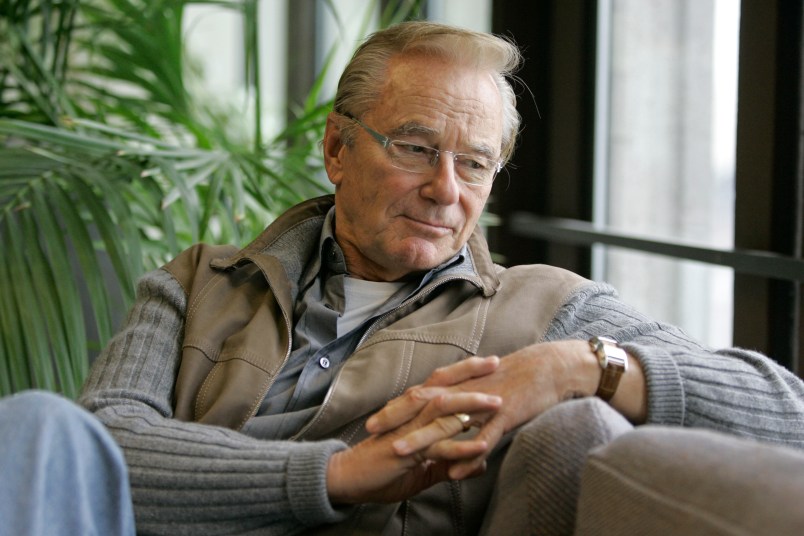Earlier this month, venture capitalist Tom Perkins — who rose to recent notoriety for comparing fights against inequality to the Nazi’s ‘Kristallnacht’ — offered an idea to reduce the voting power of poor and middle-income voters who might want America’s wealthiest to share some of their bounty. He explained, “The Tom Perkins system is: You don’t get to vote unless you pay a dollar of taxes. But what I really think is, it should be like a corporation. You pay a million dollars in taxes, you get a million votes. How’s that?”
Looking at the data on who votes and what laws get passed, it’s clear Perkins has no need to worry. Indeed, in today’s debates over voting rules, it is those at the bottom of the income ladder in America who should actually be very concerned.
American democracy is rife with inequalities. Not everyone has unfettered access to high-level policymakers like Perkins does. Only a few have the skills and resources necessary to run for office. The rich give more money to political campaigns than other citizens. As Duke University’s Nicholas Carnes pointed out, millionaires are just 3 percent of the U.S. population, but make up more than half of all the members of Congress and the Senate.
But voting is supposed to be the great equalizer – especially in the modern era of one person, one vote. Elected officials may collect campaign contributions from the rich and hear regularly from lobbyists speaking for the privileged, but if they ignore the interests and concerns of middle-income constituents, they supposedly can be replaced on Election Day.
But as nice as it sounds, the research doesn’t show this to be the case. Even when elections are procedurally fair and every vote is counted, some groups of U.S. voters are more likely to vote than others. In particular, voters tend to have higher incomes than the population as a whole. As researchers, we set out to explore differences in turnout between rich and poor voters in various states – and probe the impact of “class bias,” the degree to which the rich are more likely to vote than the poor.
Class bias in voting is getting worse. From 1976 to the onset of the Great Recession, 21 states saw decreases in class biases in voting, but 29 states saw increases – and the increases were much larger than the decreases. And richer voters are generally less supportive of policies that serve to make incomes more equal.
As researchers, we decided to test the hypothesis that the more class bias in voter turnout is skewed toward the rich, the less likely egalitarian policies are to be enacted, resulting in higher income inequality than in states where class bias in voting is less pronounced.
In the states, class bias in voter turnout is associated with increases in income inequality. This is true even when we take into account other factors that could affect economic inequality, such as the age and racial composition of the state population, trends in economic growth and the politics of people in the state.
So what did we find? How does class-skewed voting contribute to rising inequality?
First, states with higher levels of class bias in voting have been less likely to enact minimum wage increases. This increases inequality, since higher minimum wages are known to be associated with reductions in income differences.
Second, as class bias in voter turnout becomes more pronounced, state governments become less liberal generally and less responsive to public opinion when the public moves left to support steps that could reduce inequality. Liberal public opinion tends to favor egalitarian policy interventions, so governments that are not responding when the public moves in that direction are less likely to enact a wide variety of policies that could mitigate economic inequality.
What then can be done by those who disagree with Tom Perkins and wish to reduce income inequality? Our research suggests that encouraging more widespread voter participation is part of the answer.
Over the past decade, and especially since 2010, state legislatures around the nation have hosted a very lopsided debate over election rules. Supporters of new restrictions on voting, mainly Republicans, are advocating ideas like requiring photo ID from every voter, reducing early voting hours and restricting voter registration drives. On the other side, Democrats want to defend existing rules.
People concerned about rising income inequality are not well represented in this debate. Political scientists like Elizabeth Rigby have shown that election rules, particularly registration restrictions, can accentuate class bias in voting. Our own findings indicate that if those election rules are, in fact, disproportionately discouraging lower-income voters, then they are likely exacerbating economic inequality by encouraging elected officials to pay even more attention to the needs and policy preferences of the affluent than they already do.
In other words, the rich are already vote more, and it helps keeps them rich. In policy battles over voting rights, those concerned about inequality cannot accept as victory a simple defense of the status quo. They need to look to election rule reforms that will grow the electorate and especially increase the number of middle class, low-income, and poor people voting, to make the voters better resemble the population. Until then, it’s Tom Perkins’ world. You just live in it.
William W. Franko, Nathan J. Kelly, and and Christopher Witko are political scientists at Auburn University, the University of Tennessee, and the University of South Carolina, respectively, and all are members of the Scholars Strategy Network. Read more in William Franko, Nathan J. Kelly and Christopher Witko’s “Class Bias in Voter Turnout and Income Inequality,” Auburn University, University of Tennessee, and University of South Carolina, November 2013.






